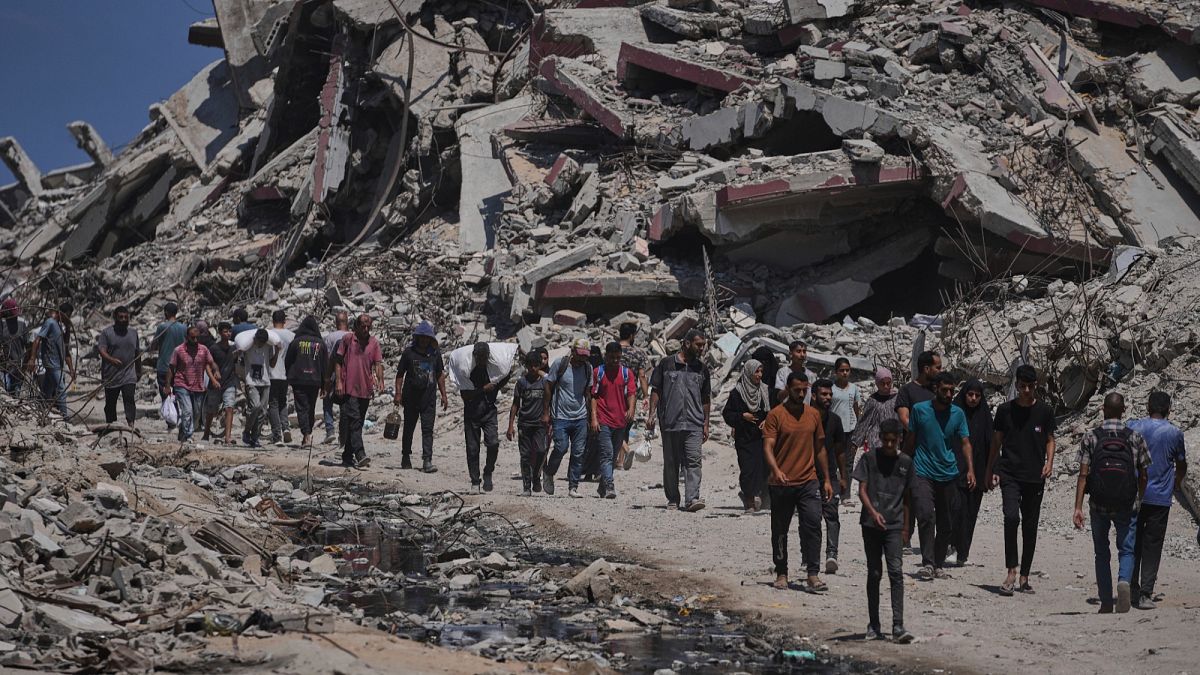

In a landscape marked by ongoing conflicts, global attention continues to focus on the humanitarian challenges and diplomatic efforts unfolding across various regions. Two prominent areas under observation are Gaza, where humanitarian aid faces significant obstacles, and Ukraine, where peace talks are underway amidst internal reforms and external attacks.
In Gaza, a pressing humanitarian situation is unfolding, accentuated by recent reports from the United Nations highlighting over 1,000 deaths of aid-seeking individuals since May. The situation has become dire following Israel’s decision earlier in the year to ban the United Nations Relief and Works Agency for Palestine Refugees in the Near East (UNRWA) from operating in the region. This decision was fueled by concerns over alleged Hamas affiliations within the agency. As a consequence, numerous aid-seekers face life-threatening scenarios with significant disruptions in the delivery of essential services and amenities.
Humanitarian organizations worldwide have responded with a unified call to action. A coalition of 111 humanitarian agencies, including reputable entities such as Doctors Without Borders and Amnesty International, has vocally condemned these restrictions. In a concerted letter, they have stressed the critical need for access to life-saving assistance for Palestinians and urged the Israeli government to permit the free distribution of humanitarian aid.
Amidst these challenges, the broader Israeli-Palestinian tensions continue to be a focal point of international diplomacy. While there are no immediate resolutions in sight, there remains hope for constructive dialogue to alleviate the humanitarian crisis and sow seeds of peace in the region.
In Ukraine, the atmosphere is similarly tense as the nation navigates a path between conflict and diplomacy. Recent Russian military strikes on Ukrainian cities, including Kramatorsk, Odesa, and Sumy, have resulted in casualties and disruption, with reports noting the tragic death of a young boy among the injuries sustained. These attacks come at a critical juncture as Ukrainian President Volodymyr Zelenskyy prepares for another round of peace talks with Russia set to occur imminently.
Internally, President Zelenskyy’s approval of a contentious bill that weakens Ukraine’s anti-corruption mechanisms has sparked domestic and international debate. Critics assert that the reform could hinder transparency and accountability, raising concerns just as Ukraine seeks to strengthen its positioning in diplomatic negotiations. Nevertheless, Ukrainian authorities are navigating this complex landscape with an ongoing commitment to finding a balanced resolution that aligns with both national interests and international standards.
The international community continues to monitor these developments with a blend of cautious optimism and unwavering determination. Global efforts to mediate peace, promote justice, and provide humanitarian aid remain at the forefront of diplomatic agendas. There is an escalating impetus for sustainable solutions and renewed dialogues in these embattled regions to create pathways towards stability and peace.
Overall, while the road ahead may present challenges, it is underscored by a hopeful narrative that through concerted diplomatic endeavours and humanitarian efforts, brighter and more peaceful futures are achievable for both Gaza and Ukraine.
Source: {link}
